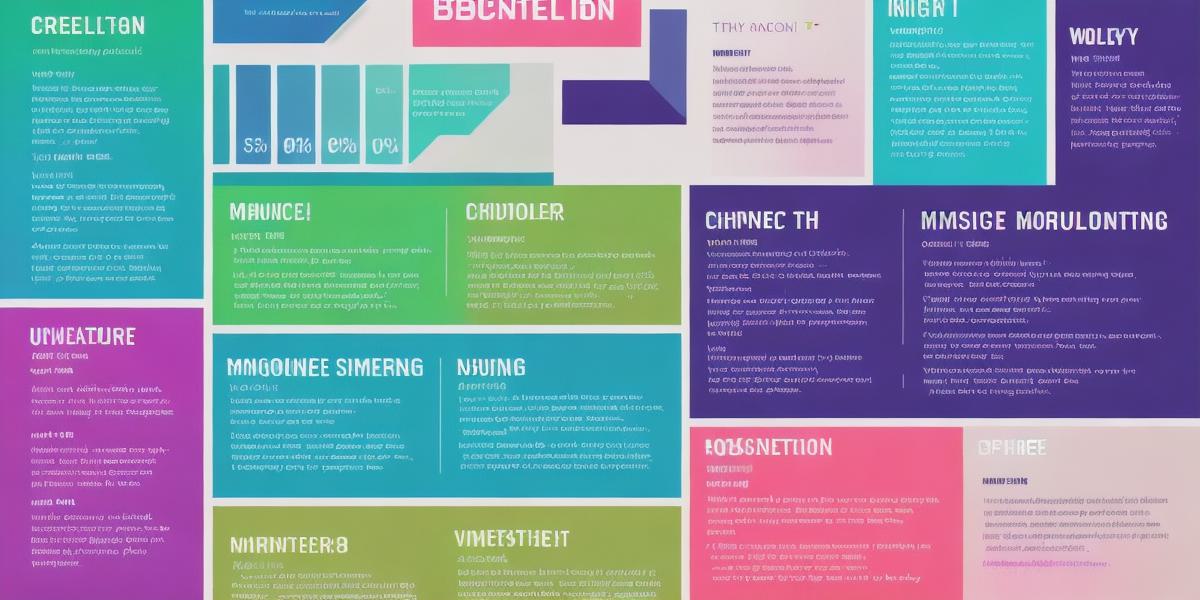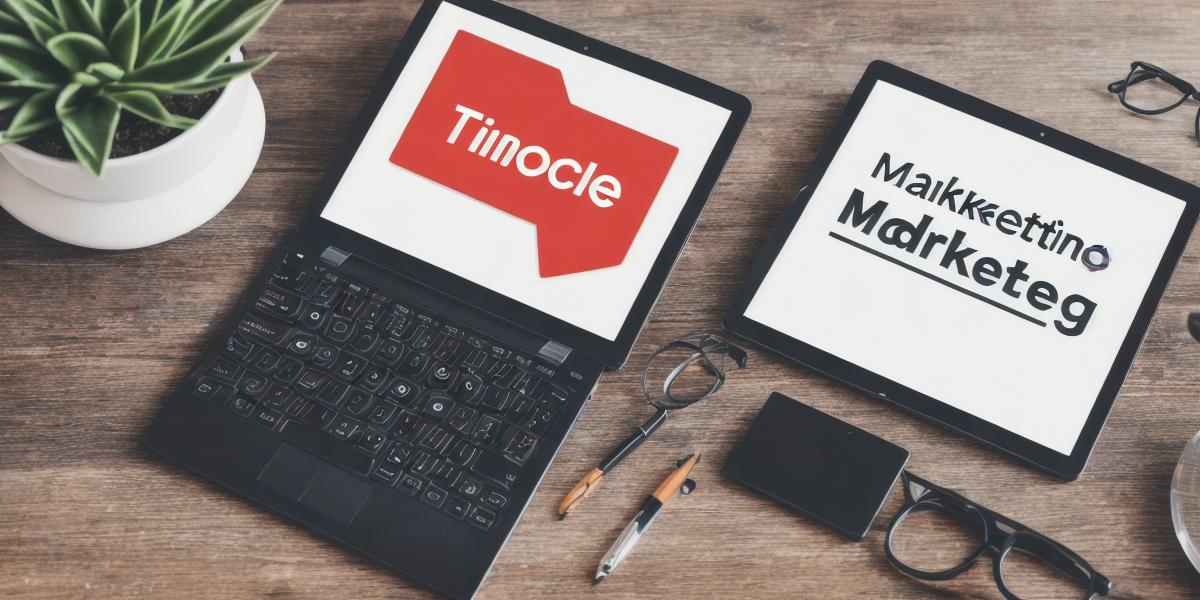Marketing is an essential aspect of any business, and it’s crucial to know how to reach your target audience effectively. In today’s digital age, media plays a significant role in marketing, and there are various techniques you can use to reach audiences through media. Here are 10 effective marketing techniques for reaching audiences through media:
- Social Media Marketing
Social media is one of the most powerful tools in modern marketing. With billions of active users worldwide, social media platforms like Facebook, Twitter, and Instagram provide businesses with an excellent opportunity to reach their target audience. By creating engaging content and using targeted advertising, businesses can connect with potential customers and increase brand awareness.
2.
Content Marketing
Content marketing is the process of creating valuable and relevant content to attract and retain a clearly defined audience. It involves creating blog posts, videos, infographics, and other types of content that are designed to inform, entertain, and educate potential customers. By providing value to your target audience, businesses can build trust and establish themselves as an authority in their industry.
3.
Influencer Marketing
Influencer marketing involves partnering with social media influencers or celebrities to promote products or services to their followers. This technique is highly effective because it leverages the credibility and influence of the influencer to reach a wider audience. Businesses can choose from various types of influencers, including micro-influencers who have smaller but highly engaged followings.
4.
Email Marketing
Email marketing is a highly effective way to connect with potential customers and keep them informed about new products, promotions, and updates from your business. By building an email list, businesses can send targeted emails to their subscribers, increasing the likelihood of engagement and conversion.
5.
Video Marketing
Video is one of the most engaging types of content, and it’s highly effective in marketing. Videos can be used for various purposes, including product demos, explainer videos, and testimonials. By using video marketing, businesses can create a personal connection with their target audience, increasing brand awareness and engagement.
6.
Search Engine Optimization (SEO)
SEO is the process of optimizing your website to rank higher in search engine results pages (SERPs). By improving your website’s visibility on Google and other search engines, businesses can attract more organic traffic to their site. This technique involves using various SEO strategies, such as keyword research, on-page optimization, and link building.
7.
Pay-Per-Click Advertising (PPC)
PPC advertising involves paying a fee to display your ad in search engine results pages or on social media platforms. By targeting specific keywords, businesses can reach potential customers who are actively searching for their products or services. This technique is highly effective because it allows businesses to only pay for ads that generate clicks and conversions.
8.
Affiliate Marketing
Affiliate marketing involves partnering with affiliate marketers to promote products or services. This technique is highly effective because it leverages the credibility and influence of the affiliate to reach a wider audience. By offering a commission for each sale generated through their referral, businesses can incentivize affiliates to promote their products.
9.
Public Relations
Public relations involves building relationships with journalists and media outlets to secure positive coverage for your business. By creating compelling stories and pitches, businesses can get featured in news articles, blog posts, and social media feeds, increasing brand awareness and credibility.
10.
Event Marketing
Event marketing involves promoting products or services through events such as conferences, trade shows, and webinars. By hosting or sponsoring events, businesses can connect with potential customers and establish themselves as thought leaders in their industry. This technique is highly effective because it allows businesses to create a personal connection with their target audience.
Case Studies and Personal Experiences
One of the best ways to understand marketing techniques is by looking at real-life examples. Here are some case studies and personal experiences that illustrate the effectiveness of these techniques:
Social Media Marketing
Social media has been a game-changer for many businesses, including Dollar Shave Club. By creating a viral video that went viral on YouTube, Dollar Shave Club was able to reach millions of people and generate massive sales. The video’s success was due to its humor, relatability, and clever marketing strategy.
Content Marketing
Content marketing has helped many businesses establish themselves as authorities in their industry. HubSpot, for example, has built a massive following by creating valuable content such as blog posts, infographics, and e-books. By providing value to its target audience, HubSpot has been able to attract and retain customers, increasing brand awareness and loyalty.

Influencer Marketing
Influencer marketing has helped many businesses reach new audiences through partnerships with social media influencers. Glossier is a great example of this technique. By partnering with influencers such as Emily Weiss, Glossier was able to increase brand awareness and generate massive sales. The success of this campaign was due to the influencer’s credibility and influence within their niche.
Email Marketing
Email marketing has helped many businesses build relationships with potential customers and keep them informed about new products, promotions, and updates. Mailchimp is a great example of this technique. By sending targeted emails to its subscribers, Mailchimp has been able to generate massive sales and increase brand awareness.
Video Marketing
Video marketing has helped many businesses create a personal connection with their target audience. Tasty, for example, has built a massive following by creating highly engaging food videos. By providing value through humor and creativity, Tasty has been able to attract and retain customers, increasing brand awareness and loyalty.
Search Engine Optimization (SEO)
SEO has helped many businesses increase their visibility on search engines and attract more organic traffic to their site. Moz is a great example of this technique. By optimizing its website for various keywords, Moz has been able to rank highly in SERPs, increasing its visibility and generating more traffic.
Pay-Per-Click Advertising (PPC)
PPC advertising has helped many businesses reach potential customers who are actively searching for their products or services. Google AdWords is a great example of this technique. By targeting specific keywords, Google AdWords has been able to help businesses reach highly targeted audiences, increasing the likelihood of engagement and conversion.
Affiliate Marketing
Affiliate marketing has helped many businesses increase sales by partnering with affiliate marketers who promote their products. Amazon is a great example of this technique. By offering a commission for each sale generated through affiliate referrals, Amazon has been able to incentivize affiliates to promote its products, increasing sales and brand awareness.
Public Relations
Public relations has helped many businesses build relationships with journalists and media outlets to secure positive coverage. Tesla is a great example of this technique. By creating compelling stories and pitches, Tesla has been able to secure extensive media coverage, increasing brand awareness and credibility.
Event Marketing
Event marketing has helped many businesses connect with potential customers and establish themselves as thought leaders in their industry. SXSW is a great example of this technique. By hosting the world’s largest interactive technology conference and film festival, SXSW has been able to attract thousands of attendees and generate massive buzz for its brand.
Research and Experiments
To ensure that these techniques are effective, it’s important to conduct research and experiments to measure their impact. Here are some examples of how this can be done:
Social Media Marketing
Social media platforms provide analytics tools that allow businesses to track engagement, reach, and conversions. By analyzing these metrics, businesses can determine which social media platforms are most effective for reaching their target audience and adjust their marketing strategies accordingly.
Content Marketing
To measure the effectiveness of content marketing, businesses can track metrics such as website traffic, engagement rates, and conversions. By analyzing these metrics, businesses can determine which types of content are most effective for reaching their target audience and adjust their marketing strategies accordingly.
Influencer Marketing
To measure the effectiveness of influencer marketing, businesses can track metrics such as engagement rates, conversion rates, and ROI. By analyzing these metrics, businesses can determine which influencers are most effective for reaching their target audience and adjust their marketing strategies accordingly.
Email Marketing
To measure the effectiveness of email marketing, businesses can track metrics such as open rates, click-through rates, and conversions. By analyzing these metrics, businesses can determine which types of emails are most effective for reaching their target audience and adjust their marketing strategies accordingly.
Video Marketing
To measure the effectiveness of video marketing, businesses can track metrics such as view rates, engagement rates, and conversion rates. By analyzing these metrics, businesses can determine which types of videos are most effective for reaching their target audience and adjust their marketing strategies accordingly.
Search Engine Optimization (SEO)
To measure the effectiveness of SEO, businesses can track metrics such as keyword rankings, organic traffic, and conversions. By analyzing these metrics, businesses can determine which keywords are most effective for increasing visibility on search engines and adjust their marketing strategies accordingly.
Pay-Per-Click Advertising (PPC)
To measure the effectiveness of PPC advertising, businesses can track metrics such as click-through rates, conversion rates, and ROI. By analyzing these metrics, businesses can determine which keywords are most effective for reaching highly targeted audiences and adjust their marketing strategies accordingly.
Affiliate Marketing
To measure the effectiveness of affiliate marketing, businesses can track metrics such as sales generated through referrals, commission payments, and ROI. By analyzing these metrics, businesses can determine which affiliates are most effective for increasing sales and adjust their marketing strategies accordingly.
Public Relations
To measure the effectiveness of public relations, businesses can track metrics such as media coverage, website traffic, and conversions. By analyzing these metrics, businesses can determine which types of PR campaigns are most effective for reaching their target audience and adjust their marketing strategies accordingly.
Event Marketing

To measure the effectiveness of event marketing, businesses can track metrics such as attendance rates, engagement rates, and conversions. By analyzing these metrics, businesses can determine which types of events are most effective for attracting attendees and generating buzz for their brand.




